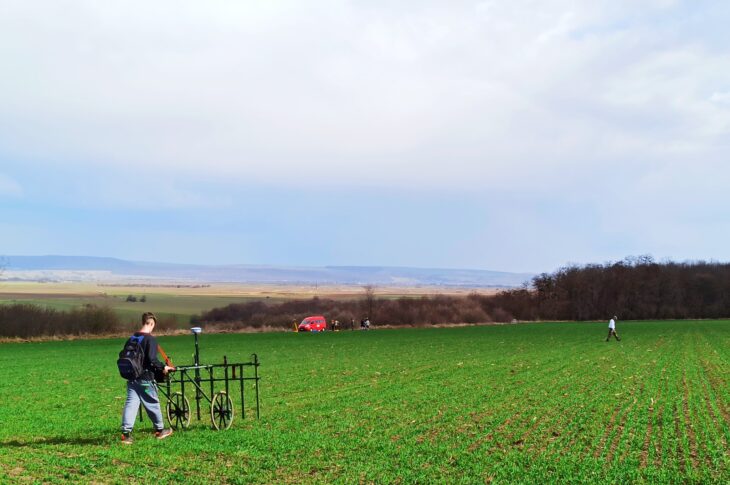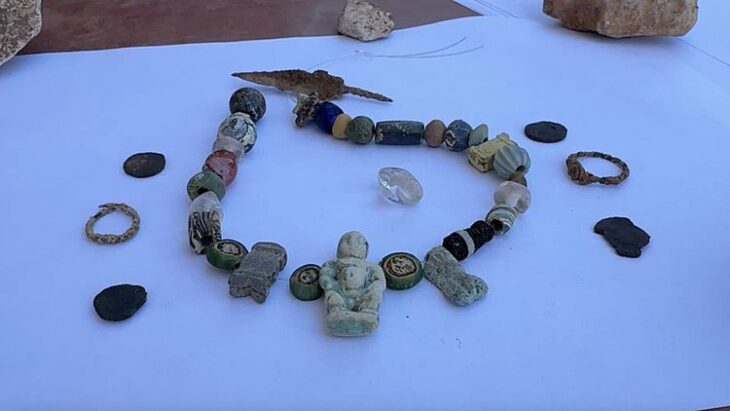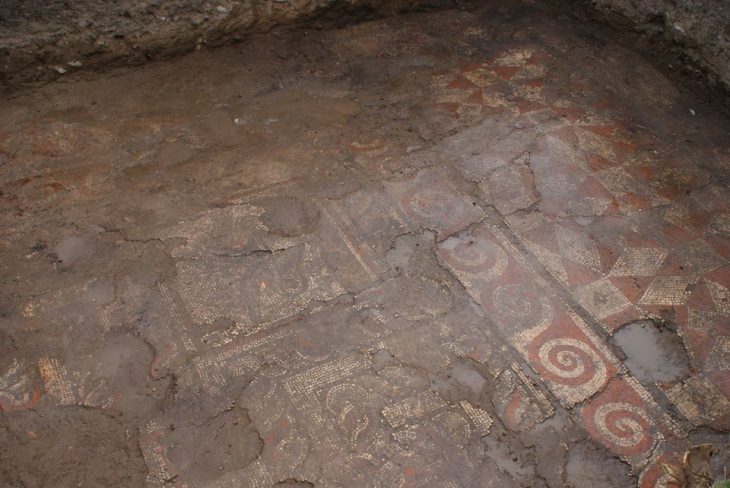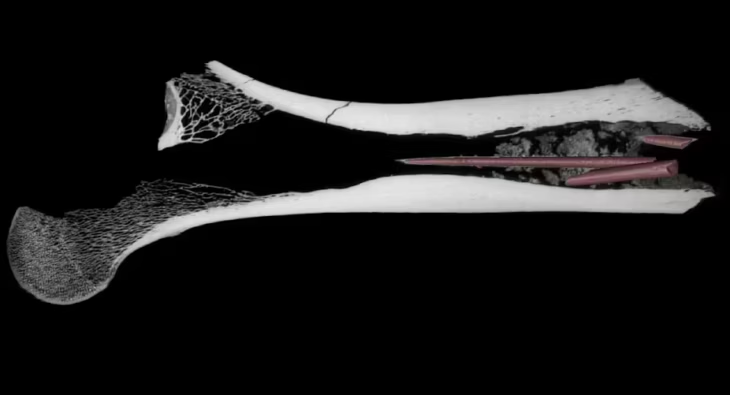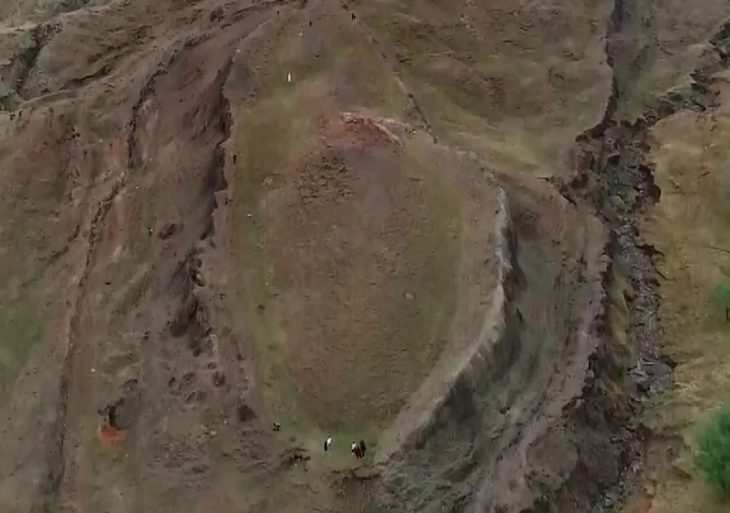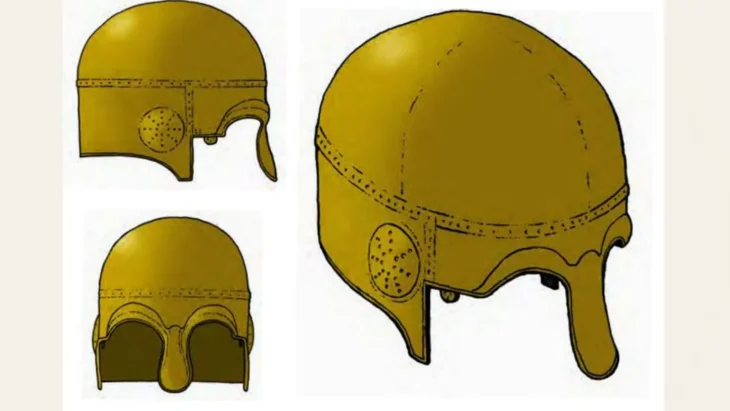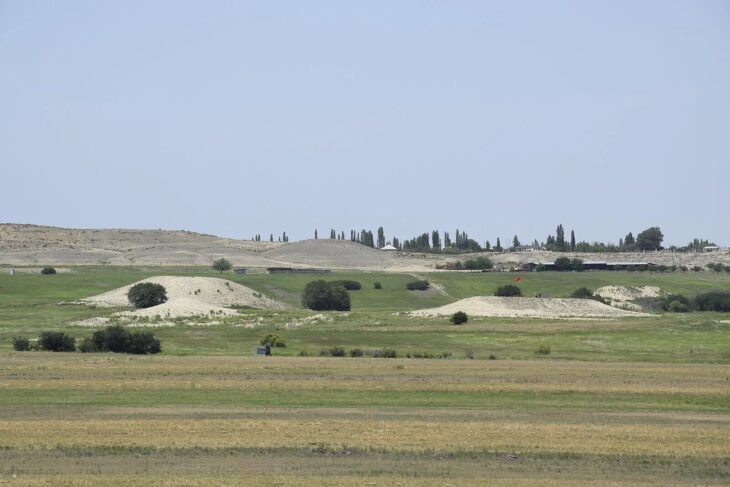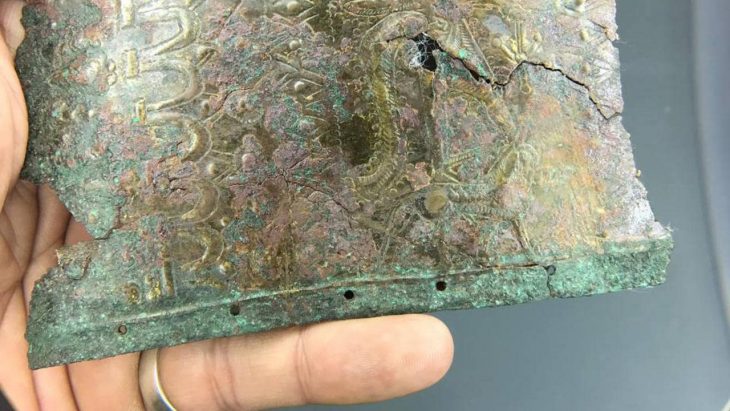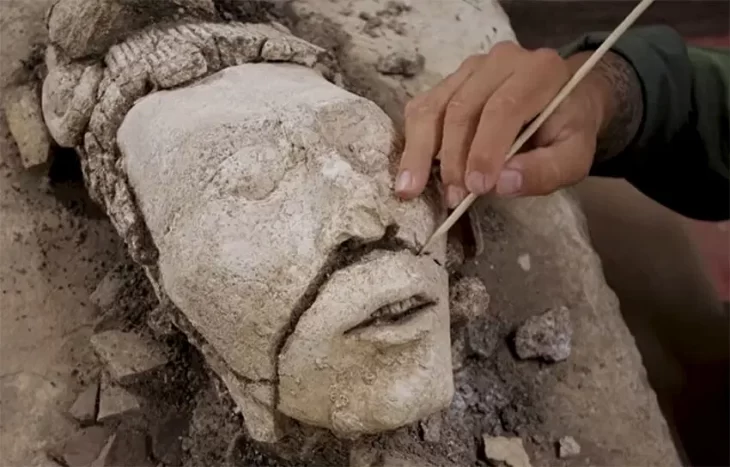Archaeologists found a 2500-year-old Greek-Ilyrian helmet during excavations in the Gomila area in the town of Zakotorac on Croatia’s Pelješac peninsula.
The same team that found the Greek-Ilyrian helmet in 2020, in the same place, has found the next helmet, which according to the first analysis is older than the one found earlier. The previous example most likely belonged to a member of the warrior elite who was interred there because it was discovered in a grave with pieces of iron weapons.
Archaeologists think the recently discovered helmet may have been a votive deposit because it was discovered in a dry stone-walled addition to a grave.
The news about the sensational discovery was given last Wednesday morning by Marta Kalebota, archaeologist of the Korcula City Museum and member of the team of archaeologists excavating in Zakotorc.
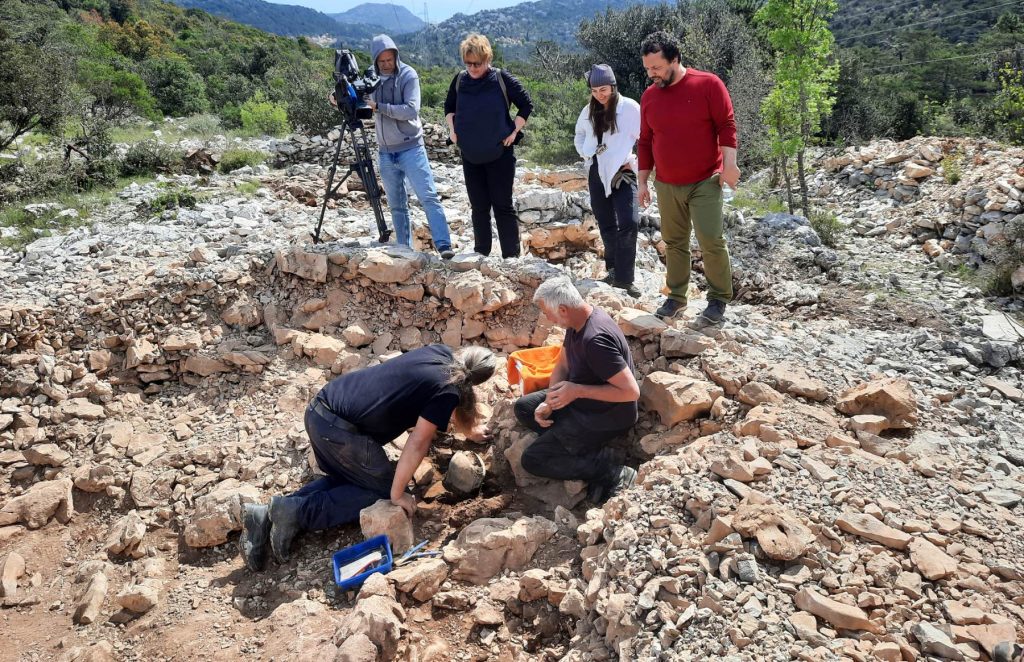
“Hrvoje lifted the stone and started shouting that he had found a helmet too! It’s an understatement to say it’s a phenomenal feeling. I am very excited, an amazing find, and for the second time. This helmet was found ten meters away as the crow flies from the location where the first one was found. It is a little different, it is distinguished from the pages that make us conclude that what has been found now dates from the 6th century BC, which means that it is older than the first one, but we need to research the details further,” archeologist Kalebota said.
📣 Our WhatsApp channel is now LIVE! Stay up-to-date with the latest news and updates, just click here to follow us on WhatsApp and never miss a thing!!
“What is very interesting is that two different types appear here in the same place, which speaks of a continuity of power of the respective community. These helmets have always been a symbol of some kind of status and power,” said Professor Hrvoje Potrebica, from the Department of Archeology of the Faculty of Philosophy in Zagreb.
Both of the helmets found are of different types and dates: The helmet discovered in 2020 was of a type commonly used in Greece and Illyria in the 4th century BC. It was an open-faced helmet with a rectangular cross-section for the face and decorative edges. The newly found helmet is thought to date from the 6th century BC and is extremely rare. Finding two different Greek-Illyrian helmets at one site is unprecedented.
This find, along with a wealth of clothing, jewelry, and burial artifacts unearthed since the excavations began, greatly expands our knowledge of the funeral practices of Illyrian communities in the latter half of the first millennium BCE.
Cover Photo: Dubrovnik Museums



